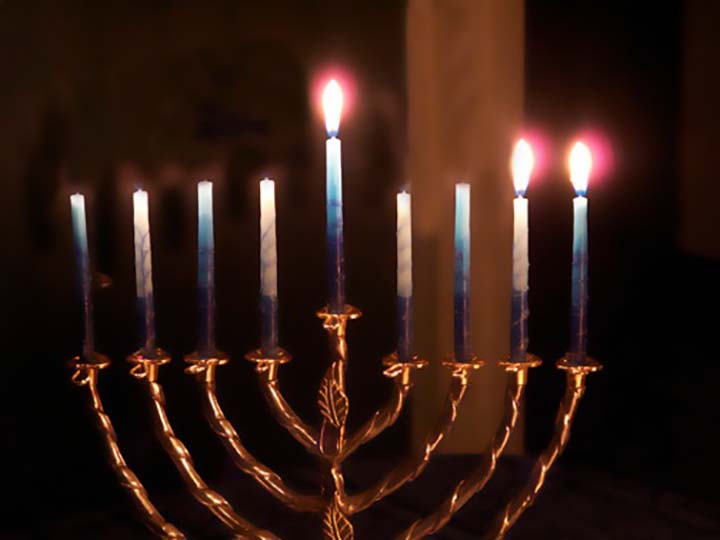Tonight we light the second candle on the Chanukiah, the traditional candle holder for the festival of Hanukkah. Last night I was wondering what became of the children I photographed a full decade ago (with parental permission) during this time of year. They were participants at a Peace Camp organized by Grace Memorial Church, attended by Christian, Jewish and Muslim children. A Muslim friend of mine taught the little ones about the customary hijab and how to wear it. Sort of. It was such a fun exercise, with a piles of old headscarves flying though the hall.
It was about getting to know each other and finding commonalities among the differences, with the hope of raising a generation that can reach out to each other. Are they in college now? Do they feel compelled to take sides, are they able to build bridges and acknowledge human suffering on all sides? Will they bring a smidgen of peace to a world that has declared war on so many fronts? A world where children like these are killed by the thousands, accepted as collateral damage?
My hope is that they were immersed in families that strove for peace all year, given that they sent their children to these kind of encounters, providing their kids with a moral compass where true North is humanity.



















Of course the story of Hanukkah is also one of war, an armed rebellion that purportedly generated a miracle for those who clung to their hopes. It is also a story that was told from very different perspectives with different conclusions. Here is a contemplation by Raphael Magarick, who teaches at the University of Illinois, Chicago.
“In part inspired by the polemics that surround Hannukah, this year, for the first time since childhood, I reread the two books of Maccabees. I realized, although few people who pontificate about Hannukah mention it, that our earliest records of this holiday are precisely, inescapably doubled: two texts, written by different authors around the same time, about sixty years after Judah Macabbeus lived, which have opposite perspectives on almost everything that matters to them.
One was originally written in Hebrew; one in Greek. One is pro-Hasmonean propaganda; one seems unexcited by, or even hostile to, the dynasty. One is composed of sober, matter-of-fact political and military history; the other is stuffed full of flashy, divine miracles. One views Seleucid Greece as the natural enemy of the Judeans; the other takes great pains to suggest the problem is just one, deviant ruler. One permits, and perhaps even requires, wars of self-defense to be fought on Shabbat; the other apparently implies the opposite. One makes a point of mocking people who observe God’s law and get killed for it; the other intensely valorizes martyrdom. One shows no interest in the afterlife; the other thinks you cannot understand the morality of our world without it. And so on.
The point, as I take it, is: we know of no version of Hannukah which was not infinitely contentious among the Jews who were celebrating it. There is no pure, original holiday to get back to. “One” holiday was not transformed into “something else” (say, a military holiday into a religious miracle), because the holiday always contained within it multitudes of contradictions. Difference and contest go all the way down. Whatever one thinks of a present-day desire for a singular Jewish community in ideological lockstep, it is not a desire that has anything to do with our earliest records of Hannukah.
Hannukah is truly, as the great Haredi thinker Rav Yitzchak Hutner wrote, the holiday that celebrates dispute and disagreement. Wishing everyone a happily disputatious Hannukah.”
—–
I fear we have gone far beyond disputation and reached an unbridgeable chasm in our views of what necessitates wars or constitutes justified self defense. Here is music by a 20th century Jewish composer focused on peace, Ernst Bloch – Nigun. And here is a contemporary album Nigunim by Pawel Szamburski. This music shines a light equal to the candles in the darkness.
